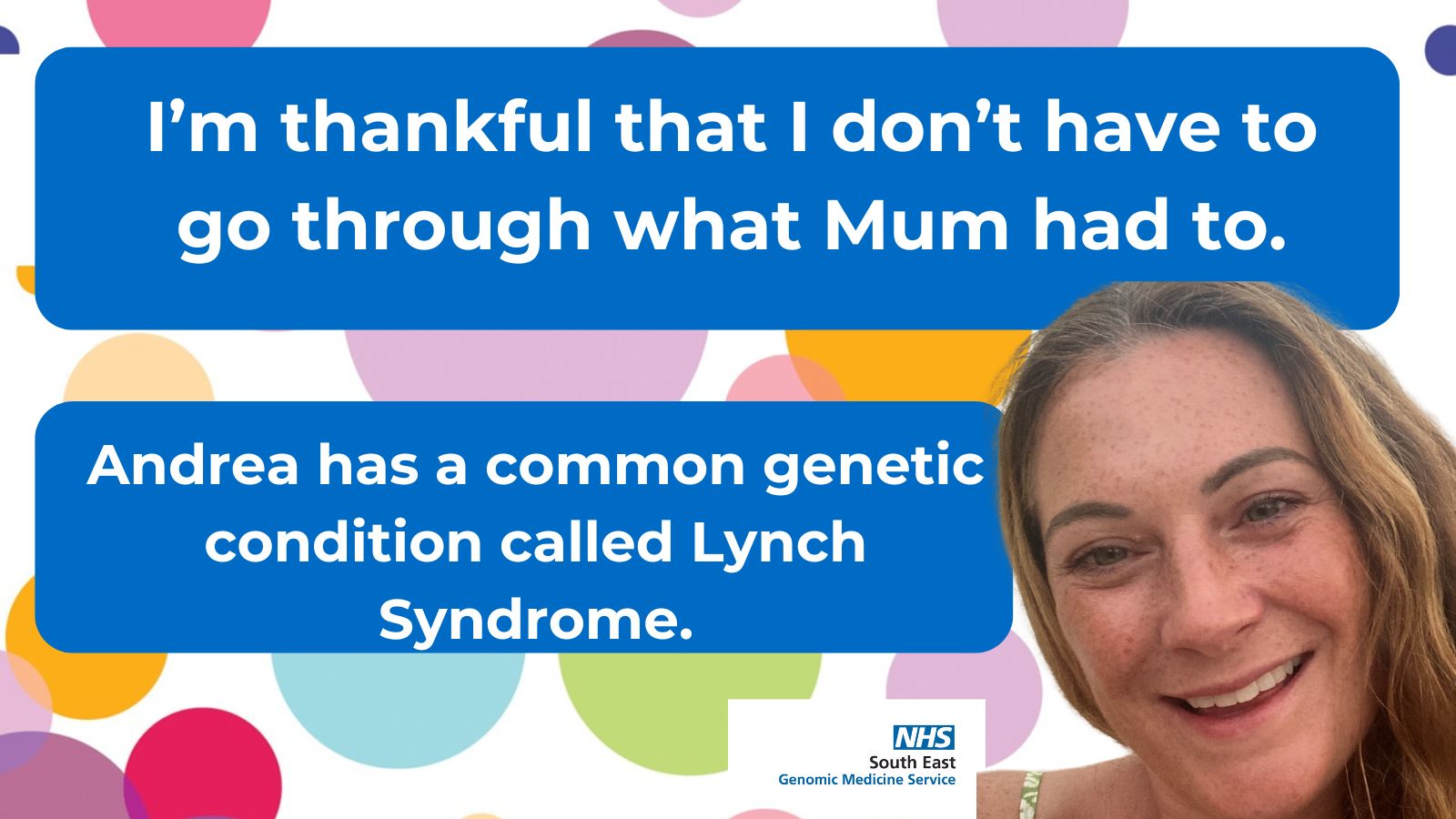
Andrea is recovering from a hysterectomy. While she’s taking time to rest, she’s determined to raise awareness of Lynch Syndrome, a common genetic condition that most people have never heard of.
“When Mum was 52, she was tired all the time. She had a tough job working long hours as a healthcare assistant and the GP told her it was the menopause. It wasn’t until she had blood in her poo that they started to take her seriously.”
Andrea’s Mum had bowel cancer. A few years later she had womb cancer and doctors suggested she have genetic testing. The results showed that she had Lynch Syndrome, which increases her chances of developing cancer, particularly bowel cancer and endometrial cancer. Doctors advised that Andrea should also be screened for Lynch Syndrome.
“I’d never even heard of Lynch Syndrome before. Why is it so common but people don’t know about it?”
Andrea was 37 when she discovered that she too had Lynch Syndrome. Around the same time her Mum was diagnosed with kidney cancer and had to have a kidney removed.
“I was terrified and I knew I didn’t want to go through what Mum was dealing with. I thought is Mum’s story, now my story?”
Andrea’s diagnosis means that she now gets regular screening for bowel cancer, which should pick up any changes early on, but not all cancers can be picked up with screening. She’s also been taking aspirin every day to further reduce her risk of cancer.
Now in her forties, Andrea has decided to have a preventative hysterectomy to further reduce her risk. Her surgery was completed robotically and she should be back at work as a hairdresser and singing with her band within a month.
“I’m chuffed to bits that I can avoid many of the issues that Mum has had to deal with. I can’t get ovarian or womb cancer now and I’ll carry on with my regular bowel screening. I’m doing what I can to protect myself. Mum didn’t have the same chance.”
Up to 300,000 people are thought to have Lynch Syndrome in the UK right now, but only 5% of them know they have it.
Everyone who is diagnosed with bowel or endometrial cancer should be offered genetic testing for Lynch Syndrome as part of a national NHS programme.
A genetic diagnosis of Lynch means that doctors can treat your cancer more effectively, but it also means your family can access genetic testing for Lynch Syndrome to help prevent cancer in them.
Lynch Syndrome can increase your risk of developing cancer to 80% over your lifetime. The genetic change seen in Lynch can lead to more abnormal cells developing which then multiply and become cancerous.
